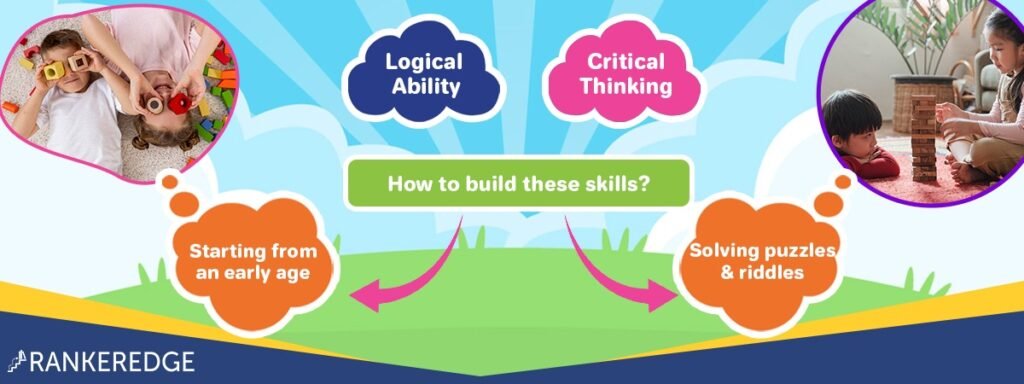
Ever wondered why some people are very natural at solving puzzles while some struggle to understand the underlying problem? And why some people solve them much faster than others do. Does it have anything to do with the logical, critical thinking and reasoning skills one possesses? While it might be tempting to attribute it to the way the human brain functions and creates this capability, psychologists attribute it to the skills we pick up in our early childhood.
Children are naturally good at reasoning. Children begin understanding the logical connection between things they observe, from an early age of 2-3 years. Hence young toddlers learn a lot by observing other family members. By the age of 5-6, children start seeking answers through the process of internalising logic. This can be seen in the questions they ask and quite often parents find it difficult to answer them. By the age of 10-13, they begin to reason many things around and begin to argue with elders. Given the freedom to think and experiment with things around them they start blooming and their reasoning skills develop.
What is logical and critical thinking?
Logical ability helps one to assess a situation with all its possibilities, connect them coherently and come up with a solution. In a lot of situations, it is not just the ability to come up with a solution but the ability to come up with scenarios for a given problem in a given context and assess the pros and cons of each of the paths. It provides a way to learn new things on one’s own.
A study on toddlers revealed that children who were given the freedom to figure out things on their own learnt faster (self-learners) and have a better logical and reasoning ability as compared to children who were taught things in detail.
Self-learners tend to experiment, experience, gather information and make deductions on their own, thus gaining overall knowledge. The speed of self-learners varies and hence those who are slow would require mentors or guides, rather than teachers who solve things for them.
Why is logical thinking important?
Logical and critical thinking is a very essential skill required for problem solving in daily life. Reasoning helps you think rationally and take decisions effectively. Developing logical reasoning in children at an early age helps improve cognitive skills and increase the capability of solving intellectual problems. Memory and logical reasoning go hand-in-hand while solving problems. Logical reasoning helps one to memorise better by boosting the following types of memory:
- Motor memory: ability to routinely perform tasks repetitively
- Verbal logic memory: ability to store and retrieve information we hear
- Visual shape memory: ability to distinguish visual elements
- Emotional memory: ability to recognize feelings and connect them to related events
There is nothing better than math to teach deductive reasoning. Logic puzzles, math puzzles, brain teasers, riddles and crosswords are not just play. They teach application of reasoning skills to real world problems.
A nudge in the right direction by creating the environment to develop logical reasoning, can greatly benefit children when they grow. As parents, the best thing to do is to give them the freedom to think.
How does RankerEdge’s Chanakya Series help?
RankerEdge’s Chanakya Series, developed by experts in the domain, aims to build these logical, critical thinking and reasoning skills from an early age. At RankerEdge, we believe, these are abilities that can be acquired and built over a period of time with a little help from a mentor. These are also skills that help keep a child in good stead in the long run and prepare them for problem-solving-oriented world.
Get more details on www.rankeredge.com/web/chanakyaseries
Subscribe to one or more of these levels at: www.rankeredge.com/web/chanakyaregn







